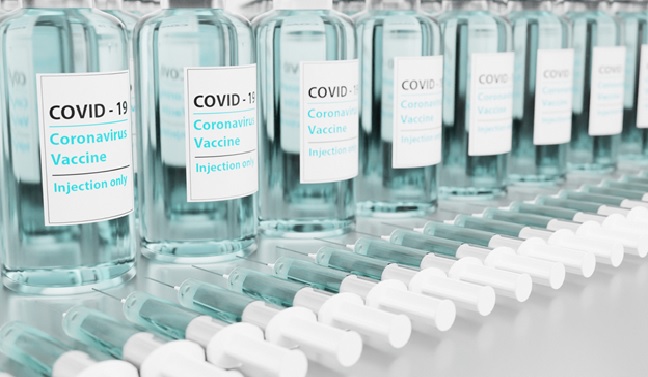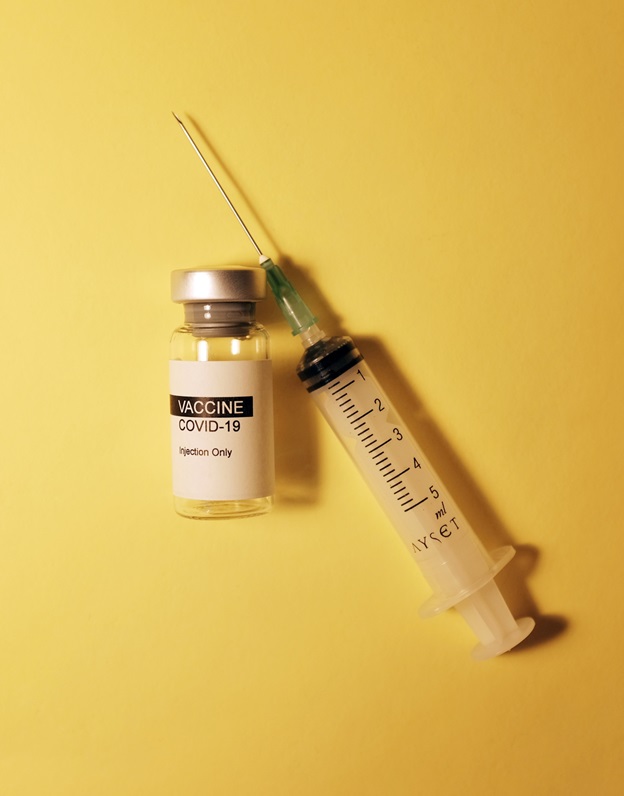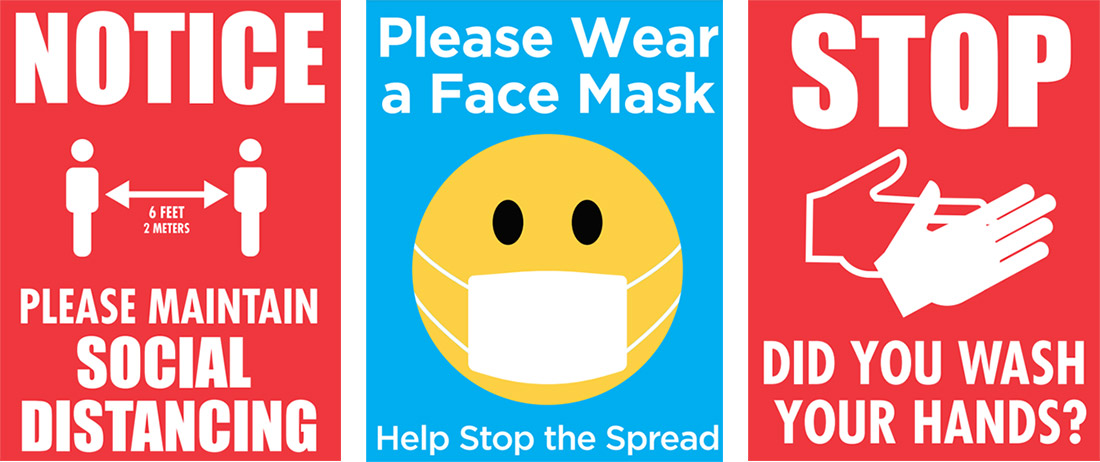
India started its national vaccination programme against the Covid 19 on 16th January 2021. Under the drive’s first phase, only health care workers and frontline workers were vaccinated till the end of February. Phase two of the drive included people over 60 years of age and those aged 45 and above with specified co-morbid conditions. Till 24th March, 2021, 21.8 million people who are above the age of 60 years received a shot each, 8.4 million frontline workers received at least one shot, as did 7.9 million health care workers, and 4.7 million people between 45 and 60 years with co-morbidities.
Meanwhile, 3.1 million frontline workers and 5 million health care workers received second doses. According to Health Officials, India has administered 55 million vaccine doses across the country as of 25th March 2021, which means at least 3% of the Indian population has received at least one dose of the vaccine.
However, just when we were thinking that the pandemic was under control, there has been a rise in the number of daily infections in the states of Maharashtra, Delhi, Kerala, Chhattisgarh, Punjab, Madhya Pradesh and Karnataka in the past few weeks. Of these, Maharashtra and Kerala are the most worrying, accounting for about 75 per cent of the total active Covid-19 cases in the country. This has been due to the total relaxation of the lock down and opening up of public places and offices and also mainly due to the public not following the laid down Covid Appropriate behavior and the new variants of the Virus coming into the Country from UK, Brazil and South Africa.
(Out of >200 variants of covid19 known until now, only 3 have been relevant- UK, Brazil, and South African (SA) variants.)
According to the WHO, the COVID-19 vaccines that have been approved and in development are expected to provide at least some protection against new virus variants because these vaccines elicit a broad immune response involving a range of antibodies and cells. Therefore, changes or mutations in the virus should not make vaccines completely ineffective. In the event that any of these vaccines prove to be less effective against one or more variants, it will be possible to change the composition of the vaccines to protect against these variants, but it is essential to do everything possible to stop the spread of the virus in order to prevent mutations that may reduce the efficacy of existing vaccines. Stopping the spread at the source remains the key. Current measures to reduce transmission – including frequent hand washing, wearing a mask, physical distancing, good ventilation and avoiding crowded places or closed settings – continue to work against new variants by reducing the amount of viral transmission and therefore also reducing opportunities for the virus to mutate.
As per Randeep Guleria, All India Institute of Medical Sciences, Delhi, Herd immunity is “very difficult” to achieve and one should not think of it in “practical terms” in India, especially in the times of “variant strains” of COVID-19 and “waning immunity’. Herd immunity is something that is going to be very, very difficult to achieve and it is something one should not really think of in practical terms... because the variant strains and varying immunity with times can lead to a chance where people may have re-infection or get infection again,
Stressing on the importance of vaccination, which he said is essential in India’s fight against the corona virus, he said they too will change with time tackling not only the “emerging variants” but giving more robust immunity lasting for a longer period of time. “What we have today is not the only vaccine; we will have better vaccines as time moves on and as research moves on. But right now we should take what we have if we want to really make sure that the situation in our country does not deteriorate, he added.
Noted virologist Shahid Jameel, Director, Trivedi School of Biosciences, Ashoka University, had this to say about the surge in Covid 19 cases and the emerging variants in India. In his view, there isn't enough information on mutations, especially variant lineages in India, due to low sequencing .and in the absence of that, the surge was most likely due to non-adherence to Covid appropriate behavior. He, however, cautioned that it is important to understand that more transmission will increase the chances of mutations developing and Covid appropriate behavior helps cut down on the development of variant viruses.
The Union government is now stressing on the need to speed up the vaccination drive, especially in the light of the second wave, and has announced opening up Covid-19 vaccines for all people above the age of 45 from 1st April 2021.
Though Medical experts and the Health Ministry are of the same view that vaccinating all the priority groups of the population in the least possible time is the way to contain the spread of the virus, it is almost an impossible task to achieve in a country with a population of nearly 2 billion and the current rate of vaccination being just 11 lakh doses per day. It may take at least 10 – 11years to vaccinate 70% of the population to achieve herd immunity.
The bottom line however is that Vaccination is not the ultimate solution. The need of the hour is to stop the spread of the virus at the source and adherence to the prescribed Covid 19 appropriate behavior like social distancing, wearing of mask, frequent washing of hands, avoiding crowded places, keeping the surroundings clean and disinfected is the only way to reduce the amount of viral transmission and reduce the opportunities for the virus to mutate. Supported by a robust Vaccination drive to vaccinate all the priority groups of the population, the Virus may be brought under control though elimination of the Virus may take longer.
The COVID Vaccination Drive

The pandemic triggered by the novel corona virus has brought about irreversible changes to people's lives worldwide. And in India, a nation with over 130 billion people, containing the spread of COVID 19 is nothing short of a challenge. The vaccination camp began on January 16 this year with the aim of inoculating frontline corona warriors which mainly included the medical professionals. Subsequently, the government planned an extensive vaccination drive for senior citizens and those above 45 with co morbidity.
And eventually, the vaccines were made available to all those above 45.
However, given the fact that the second wave of the pandemic triggered by a deadlier variant of the virus is spreading like wild fire, there arises a need to expedite the vaccination program.
The government’s vaccination program continues with the 2nd and 3rd phase for the Senior citizens and people above 45 years of age. The next phase catering to above 18 years is scheduled to begin from May 1, 2021.
As the Senior citizens are more vulnerable lot, LSW LifeScienceWorld sought comments from some of them who had their dose of vaccine:
Ramakrishnan Ramaiyer. Age: 68 (Hypertensive and diabetic)
As a senior citizen, I was excited and feeling safe while having the 1st vaccine dose administered. Vaccination was not at all painful and I had no major side effects except little body ache the next day.
Even though some senior citizens are doing the wait and watch game for their turn, I strongly feel, that it is advisable for the senior citizens to have the vaccination at the first available opportunity (both the doses) and be safe.
Government has given the first preference to the senior citizens for vaccination as they are more vulnerable for Covid.
I suggest all senior citizens should get vaccinated as Government has made nice hygienic arrangements with little waiting time emphasising social distancing. So go for it and continue to follow precautions even thereafter.
Mrs. Jayalakshmi Ramakrishnan,. Age: 61 (No co morbidity)
As a senior citizen, I was relieved to take the first dose of Covid vaccine. I took it in Bangalore.It was not painful. After around 15 hours, I got fever. I took paracetamol and I became alright. From 3rd day, I was back to normal.
Waiting, instead of crowding may be ok. But, watching, absolutely no need.
So, as a senior citizen, I would suggest my fellow senior citizens to go and get vaccinated and be free of worries.
Kalyanasundaram, Age 66 yrs
I had taken covishield on 3rd March at Global hub with my wife
Arrangements were well made and as we were preregistered we could get the injection post verification in a matter of one hour including the mandatory 30 minutes waiting after injection
Both self and my wife had no abnormal reaction .in fact large number of seniors living in our vicinity had no adverse reactions post administration of injection
I feel there is keen a interest among seniors to go for injections as evidenced by growing numbers of vaccinated persons.
GOI has now involved private hospitals and it will expedite the process
Free injections in government establishments and nominal Rs. 250 in private sector hospitals will go a long way in fighting the corona virus.
I am eagerly looking forward to second jab on 31st mar and i appeal to all general public to go and get vaccinated
Mohan G. Joshi- Retired CEO, now Leader Mentor for top management leadership
I am 67 with controlled blood pressure and diabetes. I did my vaccination on 5th March at the Cooper Hospital. Entire process was managed well and we have to give credit to the young staff who are doing vaccination at this scale for the first time. Many senior citizens were facing problems opening the app but there were volunteers to help them and guide them through the process. I am told that with every passing day arrangements are even better.
I did not get any fever or pain. Only on day 2, I was a bit tired and took it easy. On the 3rd morning I was back to my original fitness level. Based on my experience, I have been able to convince a few who were a bit reluctant to go for vaccination.
My concern is people should take precautions even after the second dose. Some cases of getting COVID even after vaccination will emerge. Unfortunately, bad news spreads fast and therefore the media especially the social media has to play a positive role for the next one year at least till the entire population is vaccinated and hopefully, COVID too is behind us.
Mrs Geeta Mohan Joshi- 62, Housewife
I took vaccination on 5th March along with my husband. I do not take medicines and have no history of illness. I found the entire process at the government owned Cooper Hospital in Mumbai very smooth. Young doctors and technicians were giving personal touch to everyone. This was indeed praiseworthy as they were doing vaccination at this scale for the first time.
I did not get any fever or pain. As I did vaccination in the first week after starting for the age group above 60, I have been able to convince many of my friends and relatives to go for vaccination without any delay.
Vivek Padgaonkar Former Director OPPI 64 years, no comorbidity:
After getting inoculated by the first dose of Covishield vaccine at Seven Hills Hospital, Andheri East Mumbai, I have not been impacted by side-effects like fever, body ache, etc.
The vaccination facility and overall management at the vaccination center were commendable. From entry to exit, the experience has been excellent, proper discipline was maintained, safe hygiene practices were performed, staff- healthcare workers, admin & security has been courteous, humane & professionally competent. The quality of service by the public sector has been a shade better than the private health care facilities.
Vidya Padgaonkar- Homemaker 63 years, no comorbidity
I am always the extra cautious and health-conscious person. I experienced minor body ache after getting my 1st dose of Covishield and was completely fine within another 3-4 hours.
The vaccination facility at Seven Hills hospital Andheri east and overall administration has been excellent.
The vulnerable population should step forward to get themselves inoculated against Corona. It is now said that the 2nd dose should be taken within 6-8 weeks from the 1st dose
Here is very good piece of information compiled by Prof. Sanjay Verma of PGI, Chandigarh based on the discussion that took place at a recent seminar titled ‘"Covid immunity and vaccines" at JIPMER,
1. Our current understanding of immunity following natural Covid infection, primarily based on our experience with previous SARS-CO1 and MERS infections, showed that protective IgG antibodies rise after Covid infections. After 3-4 months, their levels go down to a certain level which is usually detectable up to 2 years. (Titters are known to protect against covid19 infection still remains unknown)
However, specific T cell immunity, which is equally important, has been shown to persist even up to 17 years.
This simply means, in covid19, the possible recurrence of infection is an exception (very rare), not a rule.
Therefore, till now, out of millions of infections, only 41 cases have been reported to have 2nd infection and none of them was a severe infection.
We expect vaccine immunity to follow similar rules set by natural infection with covid19.
2. Estimates based on R0 of SARS-COV2 tell that at least 70% of our population needs to get immunity either by natural infection or by vaccination to halt the infection. Until this figure of 70% immunity is crossed, infections are unlikely to stop among the susceptible populations.
A recent ICMR seroprevalence study from India representing a wider population from various parts of the country (before vaccination started) has shown the presence of protective antibodies in 30-40% of the population in major cities and 10-20% in rural areas.
This immunity has been nonuniform, which means pockets of susceptible people are there in cities, more so in villages.
Any time this could lead to a surge of cases, like happening now in certain parts of India.
3. Out of >200 variants of covid19 known until now, only 3 have been relevant- UK, Brazil, and South African (SA) variants.
When serum of those who received Covishield was seen whether it could neutralize these variant viruses, neutralization was ok (~90%) with UK and Brazil variants. However, for the SA variant it was ~40-50%. It seems like SA variant was able to escape these antibodies' insignificant proportion.
But still, T cell response mounted following previous vaccination or natural infection (by stimulating killing of entered virus) is expected to protect against severe infection (hospitalization and death).
Such variant is responsible for 90-95% of infection in SA, currently.
It’s possible that newer variants like this could arise in future, which could circulate in India also.
Therefore, it is possible that those who got vaccinated with Covishield (mounted immune response) or got immunity by natural infection may get the infection by such variants, but they are very unlikely to develop a serious disease (hospitalization and death) in the future because of their protective T cell response.
That simply means vaccinated with Covishield or previously infected people could get the mild infection by such variants but never a serious disease.
This has been the case till now, that these variants are known to cause an increased rate of infection, (mainly in unimmunized individuals) but not linked with severe disease.
Covaxin being a whole-cell vaccine is likely to provide better coverage against these variants.
4. If you see the trend of the current rise in cases in India, the rate of infection (per day) has increased to 0.4% from 0.1% (which was persisting for the last few months). (In Chandigarh up to 0.9% from 0.1%). But fortunately, the rate of death has not increased which persists to be 0.1% only, like before; this is reassuring, for the moment.
5. But until we achieve immunity in 70% of our population, such future waves of infections among susceptible populations can’t be ruled out. Such waves will likely continue at least for the next 1-2 years (after few years eventually, such viruses are expected to become less lethal and non-relevant).
6. Although current vaccine companies, including Covishield, will be producing newer versions of their vaccines in the coming days (which could provide better coverage against these variants), but currently we don't think, any boosting with them will be an answer.
If the burden of variant causing significant disease (hospitalization and death) in those who had already achieved immunity in past by vaccination or natural infections (which is something not expected at present), the answer will be to have a newer generation of vaccines which will provide much wider coverage.
What should be done in the present scenario?
a) After CDCs newer recommendations for completely vaccinated individuals, completely vaccinated asymptomatic individuals, if exposed to a known or suspected covid19 patient; need not be asked to isolate themselves (for 1-2 weeks as we were doing before), as risk of asymptomatic infections after vaccination is very less. Symptomatic exposed individuals should be tested, if negative, no isolation.
b) Although counting of COVID positive cases should continue (for epidemiology), but should not worry much. Worry should be if hospitalization and deaths increase.
c) Since target at the moment is not to achieve 70% of immunity in population (unless we could vaccinate whole population, almost an impossible task), focus need to be to protect the vulnerable from hospitalization and death i.e., above 65 and 50-65 with co morbidities.
Ensure at least those who are known to us or working with us, get themselves vaccinated. We might need to spend some time to listen their concerns; and clarify them.
We need to learn living with this, at least for few more years.
With the availability of more vaccines in the near future, one can only hope the pandemic subsids in due course of time.
However, the globally prescribed Safety Measures have to be strictly followed for a unspecific period of time.

LSW lifescienceworld
www.lswlifescienceworld.com